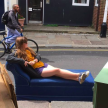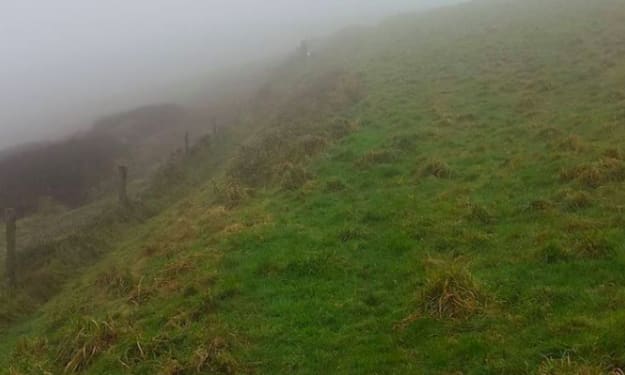Happiness is Habit
Lessons learnt from nearly a decade of downs.

When I was 18 I slipped under dark waters. I call it my Big Sad. Three family bereavements coupled with the stresses of my final year at school meant that I was struggling to stay afloat. I found my grades slipping, my anxiety piling up, and an inability to find a way out of my situation.
As I reflect on this time in my life - eight years later - I realise that this turning point has left me scarred but with coping mechanisms that have helped me through the darker days of this pandemic.
The main lesson my teenage self learnt after the Big Sad was this:
Happiness is Habit.
Perhaps this is a little controversial. I would disagree. Happiness is not some strange mythical thing that we must fleetingly grasp whenever we can. It is chemicals. Specifically four: Serotonin, Dopamine, Endorphin, and Oxytocin. These hormones are the key to happiness. And it is good habits that are the key to keeping these hormones at high levels. This is of course easier said than done. When the darkness descends like an edgy Instagram filter it’s very easy to feel isolated, and to let things pile up in a way that makes them seem unmanageable.
Let me assure you, unless you’re trying to hide a body, all your problems are manageable.
When I was going through my Big Sad my routine went something like this:
7:30am - Wake up
8:15 - Go to school
8:55-3:25 – School. Work hard in my lessons, spend time with my friends, hand my homework in on time. Get told by my teachers that I need to revise in order to reinforce my learning. Promise myself that I will revise when I get home.
3:45 – 6:30 – Don’t revise. Have a long nap in a dark room instead.
6:30 – 9:30 – Dinner and spending time with family.
9:30 – Go to bed.
Everyone says that teenagers need a lot of sleep as their brains are still developing. However, too much sleep can be detrimental. I was sleeping so much that I couldn’t function, and building bad habits further digging me into the hole of the Big Sad. These bad habits meant that I didn’t have time for any good habits.
Both Serotonin and Endorphins are activated by exercise. I was not a favourite of my PE teachers, and this put me off any form of exercise well into my twenties. I always thought that exercise meant sweating profusely and running around after a ball of some description. Turns out it doesn’t. Exercise can be as simple as a walk in the park. And that I what I do now. I take an hour at lunch and do a 5.7km route around the park, lifting my sprits for an afternoon of WFH. Getting out in nature also helps activate serotonin, meaning twice the happy hormones for your habit.
Dopamine is the reward chemical, and is activated by completing tasks. Promising myself that I was going to revise and then not doing so not only prevented me from a nice little hit of dopamine, but also racked me with guilt in the process, compounding my unhappiness.
Dopamine is also activated by self-care. You’ll see plenty of Instagram influencers touting ‘self-care’ as long bubbles baths, trips to the salon, and treating ones self to frivolous things. But that is not all that self-care is. By definition it is literally ‘taking care of yourself’, and rarely is that at all glamorous or note worthy. Self-care can be anything, from taking the bins out to cleaning your teeth.
A big thing I learned during university after my Big Sad was the positive effect of having a clean space. I hate cleaning; loathe it with every fibre of my being. However it is self-care in its most basic form. I find myself doing it more in lockdown. Mainly for something to do, but also because it is exercise, a task to complete, and self-care. Thereby activating serotonin, endorphin and dopamine all in one happy little bundle. ‘
But what about oxytocin?’ I hear you ask.
Oxytocin is the love hormone. Physical affection is the key to this one, so its understandable why you may feel down in a global pandemic where physical proximity to others is discouraged.
So how do we activate Oxytocin without bear hugging the next stranger on our government sanctioned exercise?
Love is a strange thing, and whilst physical affection is the easiest way to activate oxytocin, doing nice things for other people has the same affect. Give someone a compliment: The cashier at the supermarket; the bus driver; your delivery guy; even yourself.
The key I found to getting out of my Big Sad was to be kind to myself. Yes I wasn’t functioning on all cylinders; no I wasn’t achieving what I was 2 year ago. But you know what? I was doing my best, just as I am doing my best now. Is it the same ‘best’ that I had this time last year? No, not by a long shot. But the goalposts have moved, and moved in a way that I cant control. Happiness is habit, and by ensuring that I am aware and actively pursuing those habits means that I have not, and will not, suffer in the same way that I did at 18.






Comments
There are no comments for this story
Be the first to respond and start the conversation.